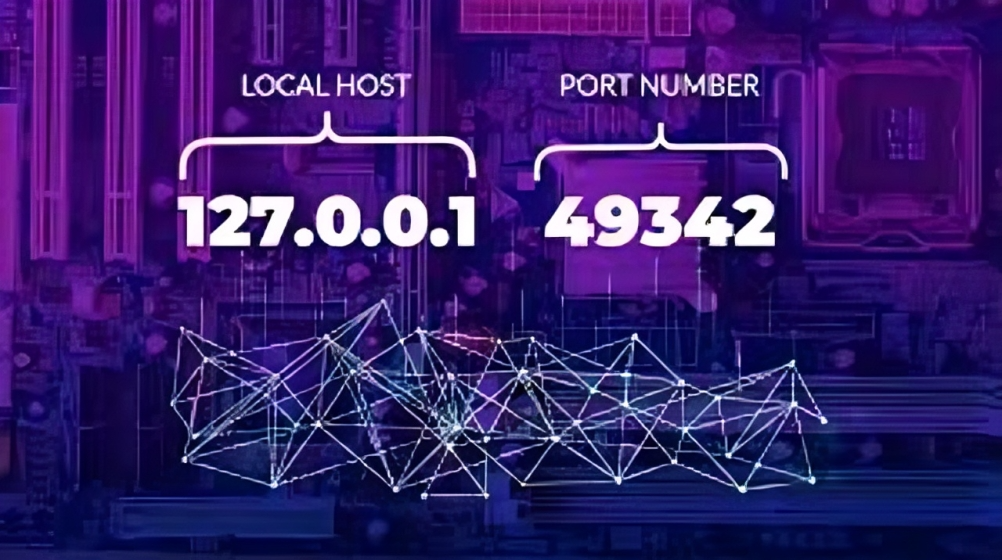Understanding 127.0.0.1:49342 The Local Networking
Explore the significance 127.0.0.1:49342 in local networking, its uses in Development, troubleshooting, and security considerations in this comprehensive guide.
Introduction
In today’s digital world, understanding how computers communicate is crucial, especially regarding local networking. When we delve into the specifics of local addresses and ports, the notation 127.0.0.1:49342 stands out as a vital concept. This post aims to provide an extensive overview of 127.0.0.1:49342, exploring its significance, uses, and implications for developers and network enthusiasts.
What is 127.0.0.1?
127.0.0.1 is the loopback address, a special IP address assigned to the local machine. It allows a computer to communicate with itself, making it an invaluable tool for developers and system administrators. In practical terms, when you ping 127.0.0.1, you are testing your network stack and ensuring your networking software is functioning correctly. Notably, this address is part of the IPv4 range designated for loopback purposes, which means any data sent to this address never leaves the local machine. Thus, it is a critical tool for troubleshooting and testing applications without external network involvement.
Understanding Port Numbers
In addition to the IP address, we must consider the port number 49342 in this case. Each network service operating on a computer typically uses a specific port number to identify itself. This system allows multiple services to run simultaneously on the same IP address, enabling efficient communication. For instance, web servers often use port 80 for HTTP traffic, while secure web traffic typically uses port 443. When you combine the IP address 127.0.0.1 with port 49342, you define a specific endpoint for communication on your local machine.
The Importance of 127.0.0.1:49342 in Development
For developers, 127.0.0.1:49342 is more than just a string of numbers; it is a local application development and testing lifeline. Many modern development frameworks and environments use this address for debugging and testing applications without deploying them to a live server. For instance, developers often run local servers that listen on specific ports like 49342 when developing a web application. As a result, they can interact with the application in a controlled environment, simulating real-world usage while avoiding the complications of external factors.
How Does Localhost Communication Work?
The communication process initiated through 127.0.0.1:49342 relies on the TCP/IP protocol suite. When a service on your machine opens a connection to this address and port, it establishes a virtual communication channel. This process allows for rapid data exchange, ensuring efficient operation and quick response times. Developers often leverage this setup to test new features, debug code, and ensure that applications work as intended. Moreover, since communication occurs internally, developers can change their code and instantly see the results without deploying them to a server.

Common Use Cases for 127.0.0.1:49342
There are numerous practical applications for 127.0.0.1:49342. For instance, developers working on web applications frequently set up local servers to simulate user interactions. They may run a framework like Node.js or Django, listening on port 49342 to handle incoming requests. Consequently, developers can access their applications via a web browser by navigating to http://127.0.0.1:49342, allowing them to interact with the application just as users would in a live environment. This process facilitates testing features, debugging errors, and validating overall functionality.
Security Considerations
While 127.0.0.1 offers significant advantages for local Development, security considerations must be considered. Since the loopback address is isolated from external networks, it inherently provides a layer of security by preventing external access. However, developers must ensure that sensitive data is not exposed inadvertently during testing. This consideration is especially crucial when working with authentication systems or sensitive user information, as the local environment may unintentionally retain data that should be protected.
Troubleshooting with 127.0.0.1:49342
Another essential aspect of 127.0.0.1:49342 is its role in troubleshooting network issues. When network problems arise, one of the first steps is often to test the loopback interface. By pinging 127.0.0.1, users can verify that their network stack is functional. If this test fails, it indicates a deeper networking software or hardware issue. Moreover, when developers experience problems with their applications, they can direct traffic to 127.0.0.1:49342 to isolate and diagnose issues without the complexity of external factors.
Advantages of Using Localhost
Utilizing 127.0.0.1:49342 for development and testing purposes comes with numerous advantages. Firstly, it provides a safe environment where developers can experiment without fearing affecting live systems or data. Secondly, localhost communication is typically faster than external server communication, enabling quicker testing and iteration. Thirdly, this setup fosters innovation, allowing developers to try new technologies, frameworks, and methodologies without barriers.
Tools That Leverage 127.0.0.1:49342
Several development tools and software rely on 127.0.0.1:49342 to facilitate local Development. For example, popular tools like Docker and Vagrant allow developers to create isolated environments that utilize the loopback address for communication. Additionally, integrated development environments (IDEs) often provide built-in servers that use this address for running applications, offering developers a seamless way to test their code in a controlled setting.
The Role of 127.0.0.1 in Network Configuration
Understanding 127.0.0.1 also plays a significant role in network configuration. Administrators often create rules that apply specifically to the loopback interface when configuring firewalls or security settings. This configuration ensures that any services running on the local machine are protected from external attacks while allowing internal communication. Moreover, by managing access to 127.0.0.1, administrators can fine-tune their security posture without compromising functionality.

Performance Testing with 127.0.0.1:49342
Performance testing is another critical aspect of using 127.0.0.1:49342. Developers often run application performance benchmarks using local servers to simulate high traffic and load scenarios. By directing requests to 127.0.0.1:49342, they can analyze how their application performs under various conditions, identifying bottlenecks and areas for improvement. This practice is essential for optimizing applications before deploying them to production environments.
Advanced Networking Concepts
Delving deeper into networking concepts, 127.0.0.1:49342 is an entry point for understanding more advanced topics like network proxies and tunnelling. Developers can configure local proxies that listen on this address, allowing them to intercept and analyze network traffic for debugging and testing purposes. Furthermore, tunnelling protocols enable secure machine communication, often utilizing the loopback interface to facilitate encrypted data transfer.
Utilizing APIs with 127.0.0.1:49342
In modern application development, APIs enable communication between different services. When developing applications that rely on API calls, developers often set up local APIs on 127.0.0.1:49342 for testing. By sending requests to this address, they can validate responses, debug endpoints, and ensure the API behaves as expected before deploying it to a live server. This process streamlines development workflows, promoting efficient collaboration between front-end and back-end developers.
The Future of Local Networking
Looking ahead, the Importance of addresses like 127.0.0.1 and specific ports such as 49342 will likely continue to grow. As more applications move toward cloud-based solutions, developers still need robust local development environments to facilitate rapid testing and iteration. Moreover, as technology evolves, we can expect new tools and frameworks to emerge, further enhancing the usability and capabilities of local host communication.
Conclusion
127.0.0.1:49342 represents a fundamental aspect of local networking, serving as a cornerstone for developers and system administrators. Its role in facilitating communication, testing, and troubleshooting is indispensable in today’s digital landscape. By understanding the intricacies of this loopback address and its associated port, developers can harness its potential to create robust, efficient applications that stand the test of time.














Post Comment